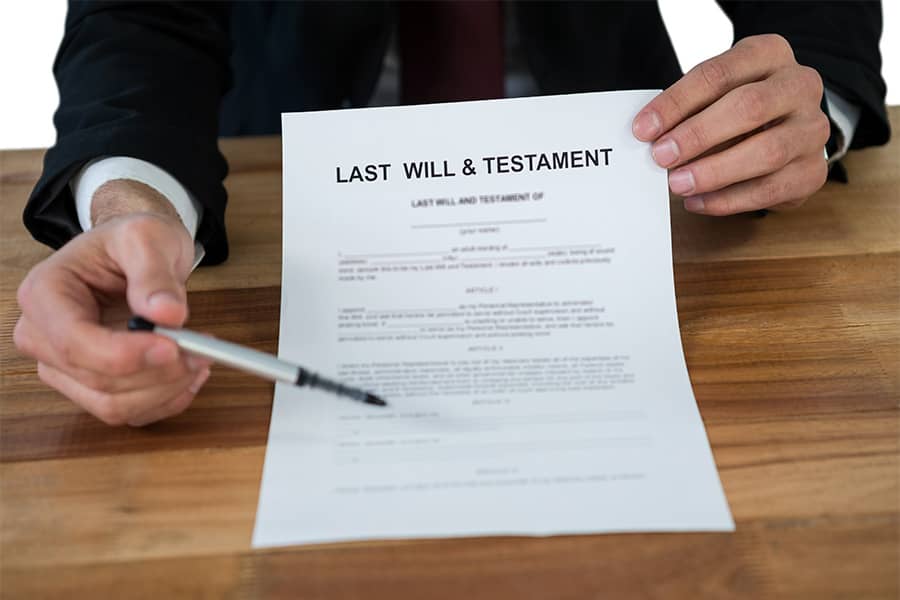When Can a Will Be Contested in Florida Probate?

Learning that something might be wrong with your loved one’s will stirs up a storm of emotions. While you’re still processing your grief, you might feel angry at the thought that someone took advantage of your loved one, scared of potentially damaging family relationships, and overwhelmed by the mere thought of speaking up and dealing with the legal system.
These feelings are all normal, and you’re not alone in experiencing them. Many people find themselves in this position, trying to balance doing what’s right with preserving family harmony, all while dealing with the pain of loss.
If you’re questioning whether something’s not right about your loved one’s will, you should know that Florida law provides options. While contesting a will isn’t a simple process, understanding your rights and options can help you make an informed decision about how to proceed.
Can You Contest the Will? Understanding “Standing”
Before we look at the reasons you can contest a will, let’s talk about who has the right to do so. In legal terms, this is called “standing,” and it’s the first hurdle you’ll need to clear.
You can contest a will if you are:
- Named in the current will (even if you got less than you expected)
- Named in a previous will (if you were cut out of the newer one)
- Someone who would inherit if there was no will at all
Here’s the thing many people don’t realize: just being a family member isn’t enough. You need to show that you would be directly affected financially by the will being invalid.
Four Valid Reasons to Contest a Will in Florida
There are several grounds to contest a Will. Four common reasons Florida courts will consider for challenging a will are as follows.
1. The Will Wasn’t Signed Properly
This one’s pretty straightforward. Florida has specific rules about how a will needs to be signed:
- The person making the will must sign it
- Two witnesses must watch them sign it
- The witnesses must sign it, too, in front of each other and the person making the will
If these rules weren’t followed to the letter, you might have grounds to challenge the will.
2. Your Loved One Wasn’t “Of Sound Mind”
This is what lawyers call “lack of testamentary capacity.” In plain English, it means the person making the will didn’t understand what they were doing. They needed to understand:
- That they were making a will
- What they owned
- Who their family members were
- What the will would do
If your loved one had dementia, was heavily medicated, or was otherwise mentally impaired when they made the will, this might be grounds for a challenge.
3. Someone Pressured or Manipulated Them
This is called “undue influence,” and it’s one of the most common reasons for will contests. It happens when someone pressures a vulnerable person so much that they end up writing a will they wouldn’t have written otherwise.
Red flags include:
- Someone isolated your loved one from family and friends
- They became dependent on one person for everything
- They made sudden changes to their will favoring their caregiver
- The person who benefited helped create the will
4. The Will Is Fraudulent
This covers situations where something fishy happened with the will itself, like:
- Someone forged signatures
- Your loved one was tricked into signing something they thought was different from a will
- Someone lied to them about important facts that affected their decisions
Important Tips About Contesting a Will in Florida
If you’re thinking about contesting a will, here are some crucial things to keep in mind:
Time Is Not Your Friend
You have to act fast. In Florida, you typically need to file your challenge:
- During the probate process
- Within 90 days of receiving notice that probate has started
- Before the estate is closed
Miss these deadlines, and you’ll likely lose your chance forever.
You’ll Need Evidence
You can’t contest a will just because you don’t like what it says. You’ll need real evidence to support your claims, which might include:
- Medical records (for mental capacity challenges)
- Witness statements
- Financial records
- Communications like emails or texts
- Previous versions of the will
Consider the Costs
Contesting a will isn’t cheap. You’ll need to:
- Hire an experienced probate attorney
- Possibly pay for expert witnesses
- Cover court costs and fees
- Be prepared for a potentially lengthy process
Getting Help With Your Will Contest
If you believe something’s wrong with a loved one’s will, don’t try to handle it alone. Will contests are complex legal proceedings that require experienced guidance. A good probate attorney can help you:
- Evaluate whether you have a valid case
- Gather the necessary evidence
- Meet all legal deadlines
- Navigate the court process
- Protect your rights and interests
Remember, while contesting a will is possible, it’s a serious step that requires careful consideration. Make sure you have both valid grounds and strong evidence before moving forward. The right legal guidance can help you make the best decision for your situation and give you the best chance of success if you decide to proceed.
